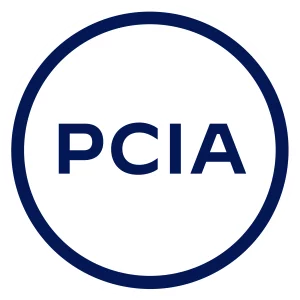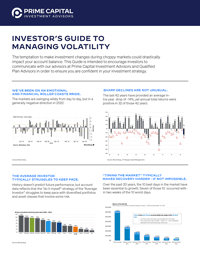When planning for healthcare costs, it’s essential to understand the tools available to manage expenses and help maximize tax benefits. Health Savings Accounts (HSAs) and Flexible Spending Accounts (FSAs) are two popular, tax-advantaged options, each with unique features tailored to different healthcare needs. It’s also important to consider how you will be getting your health insurance before you file for Medicare benefits, as well as how you can help lower your premiums once you’re on it. Read below to learn more about how HSAs, FSAs, and Medicare planning can help you prepare for both your immediate and future healthcare needs.
Health Savings Accounts (HSAs) Vs. Flexible Spending Accounts (FSAs)
Health Savings Accounts (HSAs) and Flexible Spending Accounts (FSAs) are both tax-advantaged tools for managing healthcare expenses, but they have key differences. HSAs are available to individuals enrolled in High Deductible Health Plans (HDHPs) and allow for pre-tax contributions that can be withdrawn and used for qualified medical expenses tax-free. Unlike FSAs, HSA funds roll over year to year, accumulate interest, and can be used for qualified medical expenses for yourself, your spouse and your dependents, including deductibles and co-pays, and things not typically covered under insurance including over-the-counter drugs, acupuncture, chiropractic, dental, vision, and more. (Non-medical withdrawals incur taxes and penalties.) HSAs remain the account holder’s property, even if they change employers or retire.
FSAs, on the other hand, are “use it or lose it” accounts, typically requiring funds to be used within the plan year. They allow employees to set aside pre-tax money for healthcare or dependent care expenses. While FSAs offer tax savings, any unused funds are forfeited at the end of the plan year, though some plans may offer limited rollover or grace periods. Additionally, individuals cannot have both an HSA and a Health Care FSA simultaneously.
HSA Advantages
Health Savings Accounts (HSAs) offer unique tax benefits that can make them an appealing option for some, and can be used as a tax-advantaged strategy to cover medical expenses in retirement which are not covered by Medicare. One of the primary advantages is that contributions to an HSA are tax-deductible, which directly lowers your taxable income for the year. Additionally, the growth of funds within an HSA is tax-free, allowing any interest or investment returns to accumulate without being taxed. Most importantly, withdrawals used for qualified healthcare expenses are also tax-free, providing a triple tax benefit. Unlike other medical savings options, unused funds in an HSA roll over into subsequent years, and there’s no expiration on the account balance, allowing the account to continue growing tax-deferred over time. (After death, any remaining funds are simply transferred to a spouse to use in the same way. Non-spousal inheritance is taxable to the beneficiary unless they use funds for final medical expenses for the original account holder within 12 months.)
HSA Disadvantages
While Health Savings Accounts (HSAs) can offer considerable tax benefits, there are some disadvantages to consider. First, HSAs are only available to individuals with high-deductible health plans (HDHPs), which can result in higher out-of-pocket costs before insurance kicks in. Additionally, contributions to an HSA are capped annually, limiting the amount you can set aside for medical expenses. For 2024, the limits are $4,150 for individuals and $8,300 for families, which may not be enough to cover significant healthcare costs. Moreover, if withdrawals are made for non-qualified expenses they are subject to income taxes and a 20% penalty, making improper use costly. Finally, managing an HSA may require careful planning and investment knowledge to maximize its growth potential, which could be challenging for some account holders.
Six months before you retire or get Medicare benefits, you must stop contributing to an HSA.
FSA Advantages
A Flexible Spending Account (FSA) also offers advantages in terms of tax savings. Contributions to an FSA are made with pretax dollars, meaning they are deducted from your salary before taxes are applied, which lowers your taxable income and reduces your overall tax burden. FSAs also cover a wide range of costs, including medical deductibles, co-payments, prescription medications, and certain over-the-counter treatments.
FSA Disadvantages
Despite some of the advantages a Flexible Spending Account (FSA) can offer, it also comes with some disadvantages. One of the biggest drawbacks is the “use-it-or-lose-it” rule, which means that any unused funds in your FSA at the end of the plan year are typically forfeited, though some plans offer limited rollovers or grace periods. This makes careful planning essential to avoid losing money. FSAs also have a contribution limit, which may not fully cover significant medical expenses. Additionally, funds are not flexible for all expenses, as many everyday items and certain treatments are not eligible without a doctor’s prescription.
Healthcare Coverage Pre-65
Healthcare coverage for early retirees, those under 65 and not yet eligible for Medicare, can present significant challenges. Many employers no longer offer retiree health coverage, leaving individuals in this age group to navigate options like COBRA, which is typically limited to 18-36 months and may not bridge the full gap to Medicare eligibility. The Affordable Care Act (ACA) addresses these gaps by offering early retirees access to healthcare coverage through the Health Insurance Marketplace, where essential benefits are covered and premiums are not based on health status. Additionally, income-based premium tax credits and cost-sharing reductions are available, making health insurance more affordable for many early retirees.
Help Lower Your Medicare Premiums
Your Medicare premiums are directly influenced by your modified adjusted gross income (MAGI)—the higher your MAGI, the higher your premiums may be. To help manage this, consider a blended approach to income sources in retirement, such as drawing from Roth 401(k), Roth IRAs, and other tax-advantaged accounts to reduce your tax burden. Relying solely on taxable accounts like a traditional 401(k) can significantly raise your MAGI, leading to higher healthcare premiums. By strategically combining withdrawals from various accounts, especially those Roth IRAs, you can help create a stable income stream while also helping stabilize and potentially lower your Medicare premiums.
If you’re looking for help navigating health care options or if you’re looking for a second opinion on your current strategy in general, remember, we are here to help with the complexities of financial planning while keeping your financial goals in focus. Give Jason Noble a call today at (843) 743-2926 or call Prime Capital Financial Wichita at (316) 669-9413 to take the first step toward designing a portfolio tailored to you.
This article is for general information only and should not be considered as financial, tax or legal advice. Prime Capital and its associates do not provide legal or tax advice. Individuals should consult with an attorney or professional specializing in the fields of legal, tax, or accounting regarding the applicability of this information for their situations.
Advisory products and services offered by Investment Adviser Representatives through Prime Capital Investment Advisors, LLC (“PCIA”), a federally registered investment adviser. PCIA: 6201 College Blvd., Suite#150, Overland Park, KS 66211. PCIA doing business as Prime Capital Financial | Wealth | Retirement | Wellness.
103124003 MKS
Sources:
https://www.cms.gov/cciio/resources/fact-sheets-and-faqs/early-retirees





